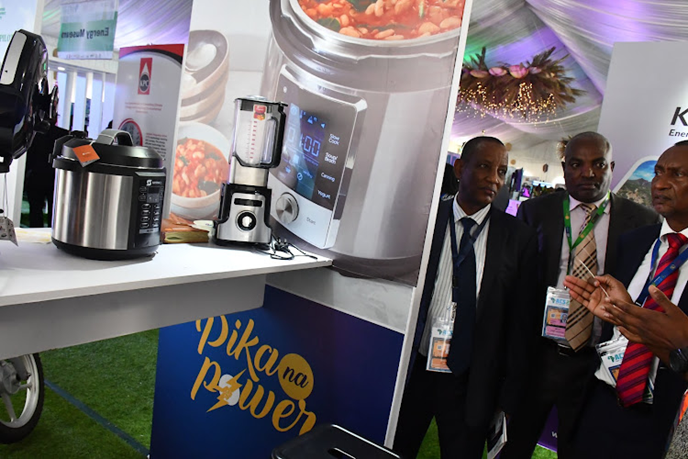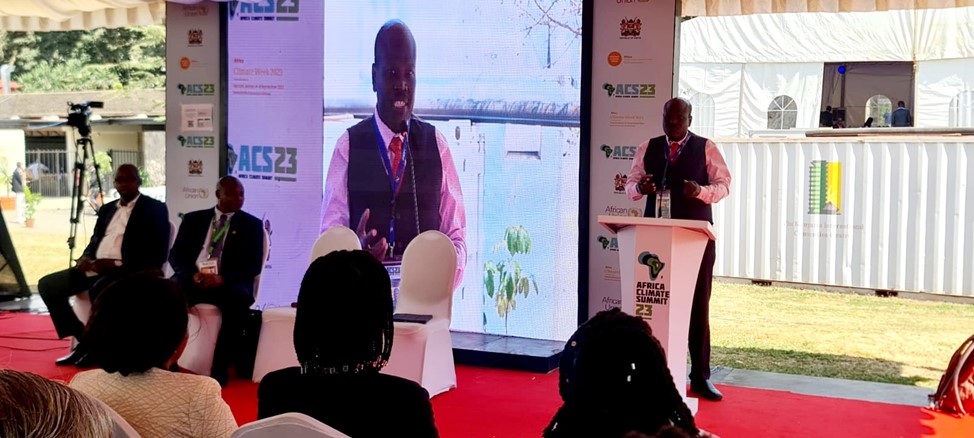
- Date
- 19th October 2023
- Categories
- Electric Cooking
By Syprose Ochieng1; Jon Leary1; Irene Wanjohi2; Beryl Onjala1
1Gamos East Africa; 2Kenya Power.
The Africa Climate Summit, a historic three-day event, hosted by the Government of Kenya and the African Union, kicked off on September 4th, 2023. It has mobilized heads of state and government, international organizations, non-governmental organizations, civil society as well as hundreds of African youths to discuss ways to deliver innovative green growth and climate finance solutions. In this blog, we highlight some of the commitments made, specifically by Kenya Power (KPLC), and what that would mean for the eCooking sector in Kenya.
During the summit, the overarching sentiment was that Africa must become a hub for clean energy and a leader in low-carbon economic development. In Kenya, the shift towards electric cooking has emerged as a promising solution to combat climate change and improve the lives of its citizens. Many partnerships and announcements were made by different players that would result in reduced carbon emissions. This included the Global eCooking Coalition (GeCCo), a group of eCooking supporters working together to greatly increase access to electric cooking solutions throughout the world, lowering the environmental effect of cooking and increasing the quality of life for millions of people. The Coalition is a collaborative effort of the Energizing Development (EnDev), The Global Energy Alliance for People and Planet (GEAPP), the MECS Programme, and Sustainable Energy for All (SEforALL) which aims to facilitate a mass transition to eCooking solutions.

At the GeCCo session Dr. (Eng.) Joseph Siror, Managing Director & CEO of Kenya Power Company, announced their strategy to actively promote the use of electric cooking (e-Cooking) among its 9.2 million consumers, intending to increase uptake from roughly 90,000 present users to over 500,000 users in three years.
To affirm the company’s commitment to enabling the eCooking transition to half a million of its customers, the MD issued a press release a day after the launch and noted that, “electricity has traditionally been viewed as the expensive cooking alternative by many Kenyans. Middle-class households often own task-specific electric cooking appliances such as kettles or microwaves but rely on liquefied petroleum gas for the bulk of their cooking. However, this is no longer the case as recent studies have shown. There is, therefore, an enormous untapped potential for e-cooking in the country”.
He continued to mention that “Kenya Power will work with partners to drive the uptake of e-cooking across the country. The utility has partnered with several other organizations including the Modern Energy Cooking Services (MECS), the African Centre for Technology Studies (ACTS), and the Clean Cooking Association of Kenya (CCAK) to champion e-cooking in Makueni, Kitui, Nakuru, Kakamega, and Kisumu counties. Through its Pika na Power public awareness campaign, Kenya Power aims to raise awareness of e-cooking for increased uptake by its customers. The Company has set up demonstration centres in Nairobi, Kisumu, Nakuru, and Mombasa to advance the e-cooking agenda nationally’’.

This good news stimulated mixed reactions from the netizens (Kenyans online) and major online news outlets. Netizens’ concerns were about the cost of electricity and could not believe that cooking with electricity is cheap. The other concern was around unreliable electricity and they thought it was hilarious to think of transitioning 500,000 users to cooking with electricity when outages and voltage fluctuations in some areas can frustrate potential users. However, eCooking champions took it upon themselves to clarify some of the misconceptions backing it with data specifically from the Kenya eCookbook around eCooking without downplaying the concerns of the consumers online.
What does this mean for Kenya’s emerging eCooking Sector?
This commitment presents a significant opportunity for the eCooking sector, showing the level of ambition of Kenya’s main electricity supplier. Committing to the very top will no doubt facilitate the work of our colleagues within Kenya Power who have been working tirelessly for many years to raise the profile of eCooking as a key driver of demand growth for the company. It will also make it easier for development partners to bring more funding into the sector and for local appliance distributors to secure financing to grow their businesses. It sends a clear signal that Kenya is ready to electrify cooking at scale.
However, there is a need for a clear roadmap that shows how this target will be achieved. Fortunately, the National eCooking Strategy is nearing completion, which will provide a framework that will enable the broader sector stakeholders to collaborate with Kenya Power to turn this aspiration into action. Immediately after ACS, Kenya Power hosted a workshop that brought together key government agencies and GeCCo anchor partners to think through what a national eCooking programme capable of reaching half a million people could look like. We look forward to collaborating closely with Kenya Power over the coming years to turn this vision into reality.
…………………………….
Featured image, top: Kenya Power’s booth at ACS showcasing their flagship Pika na Power (Cooking with Electricity) programme. (Photo credit: Kenya Power).